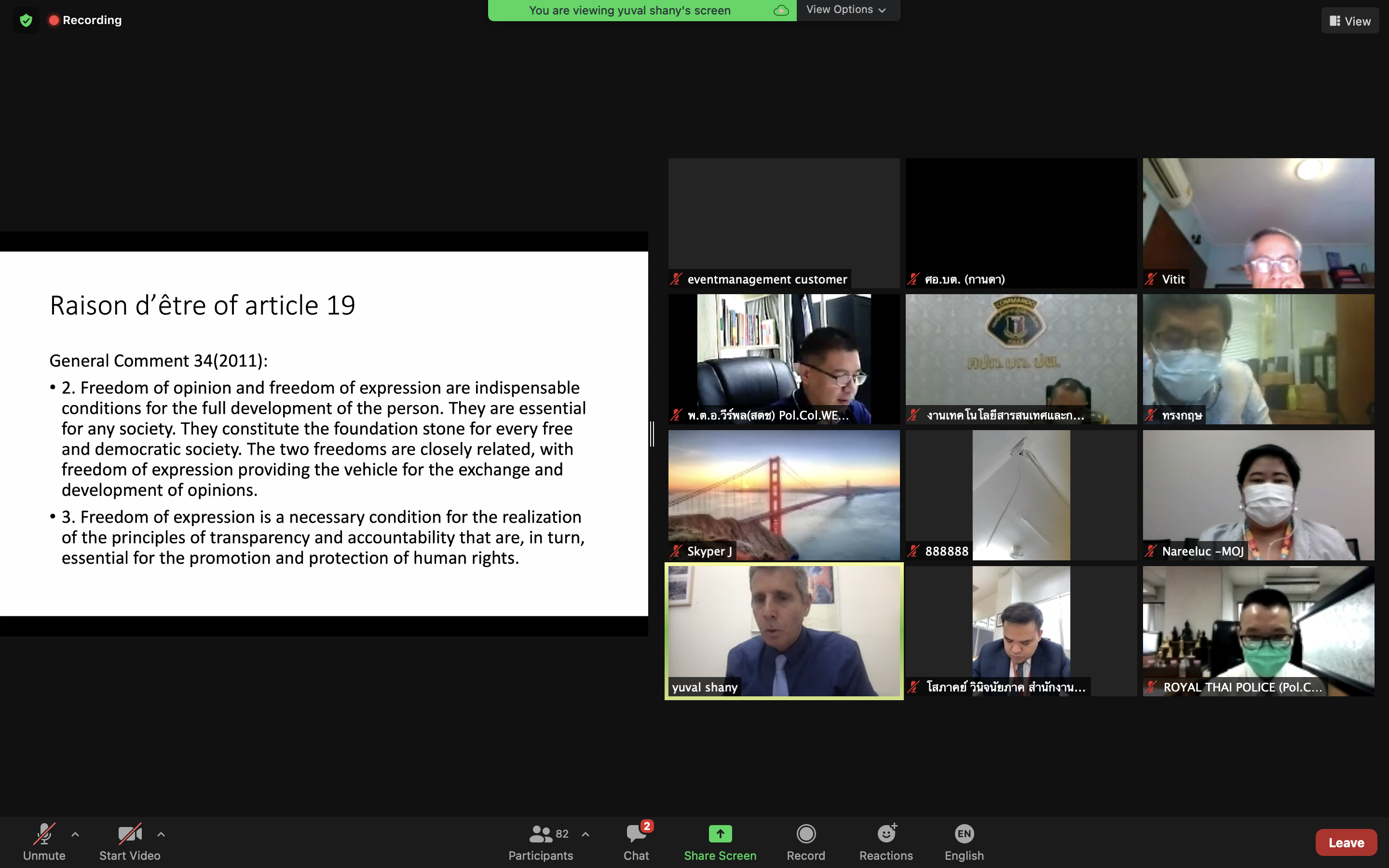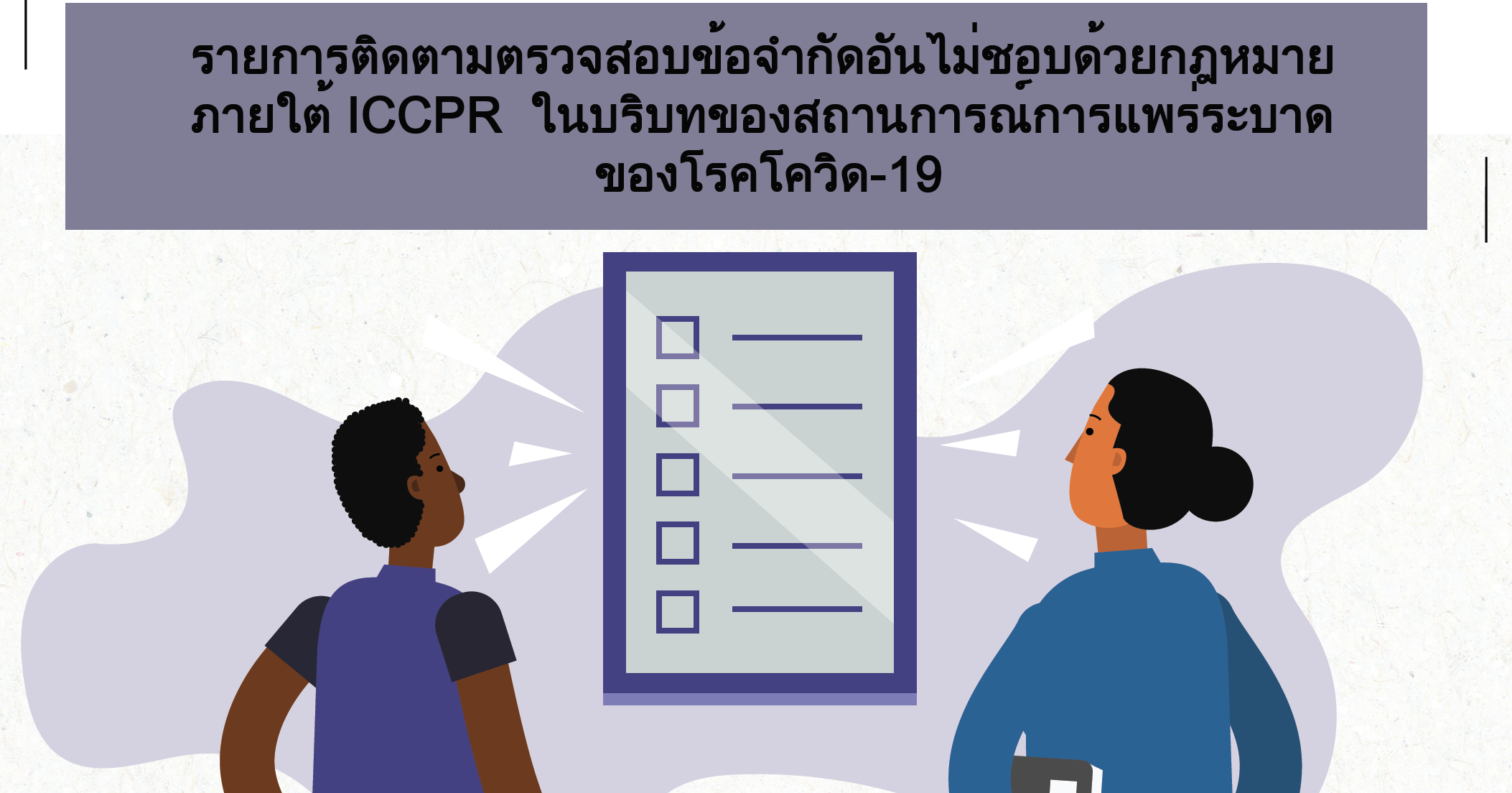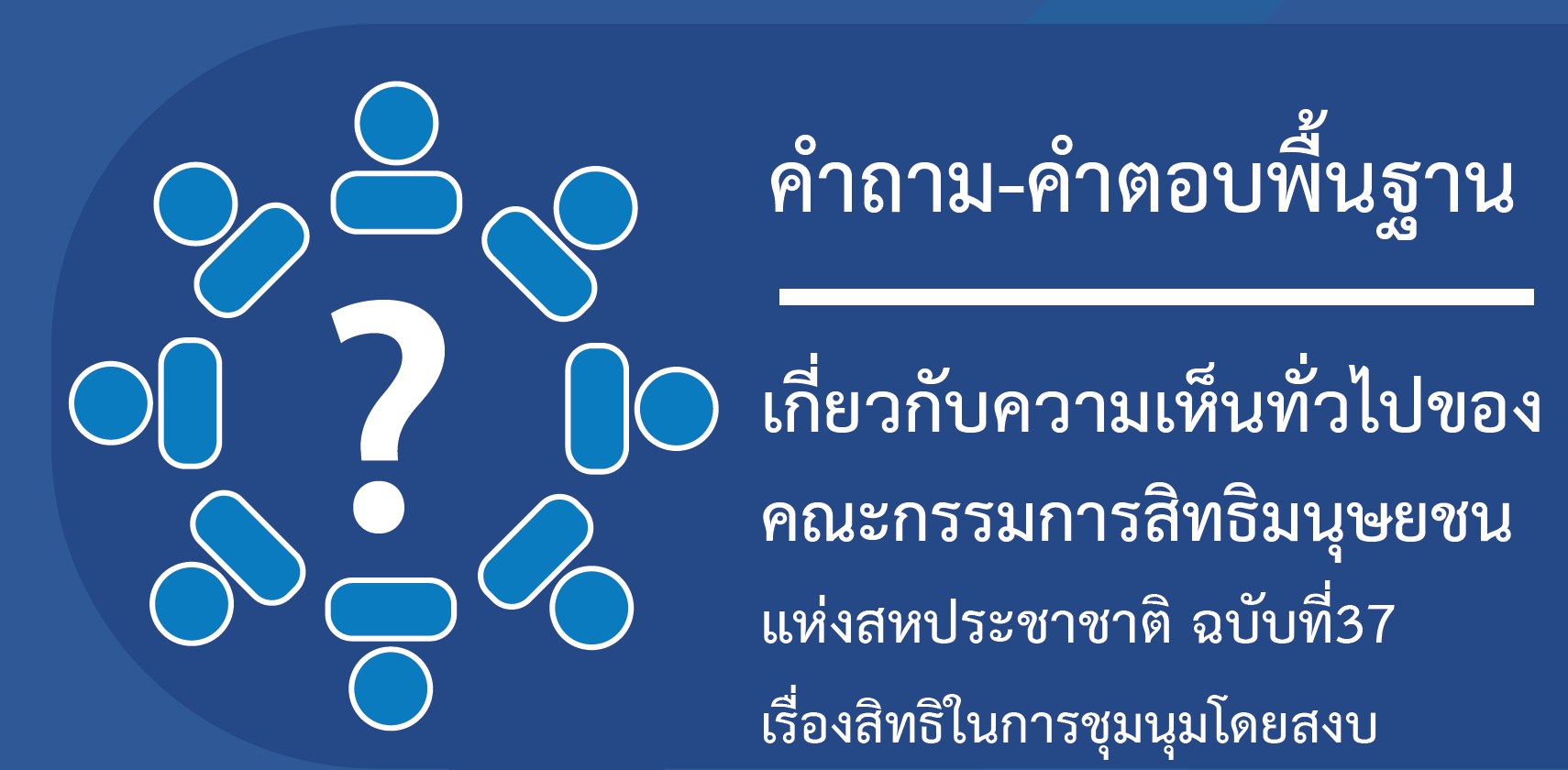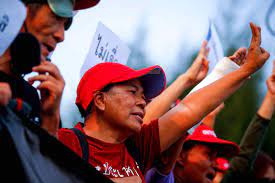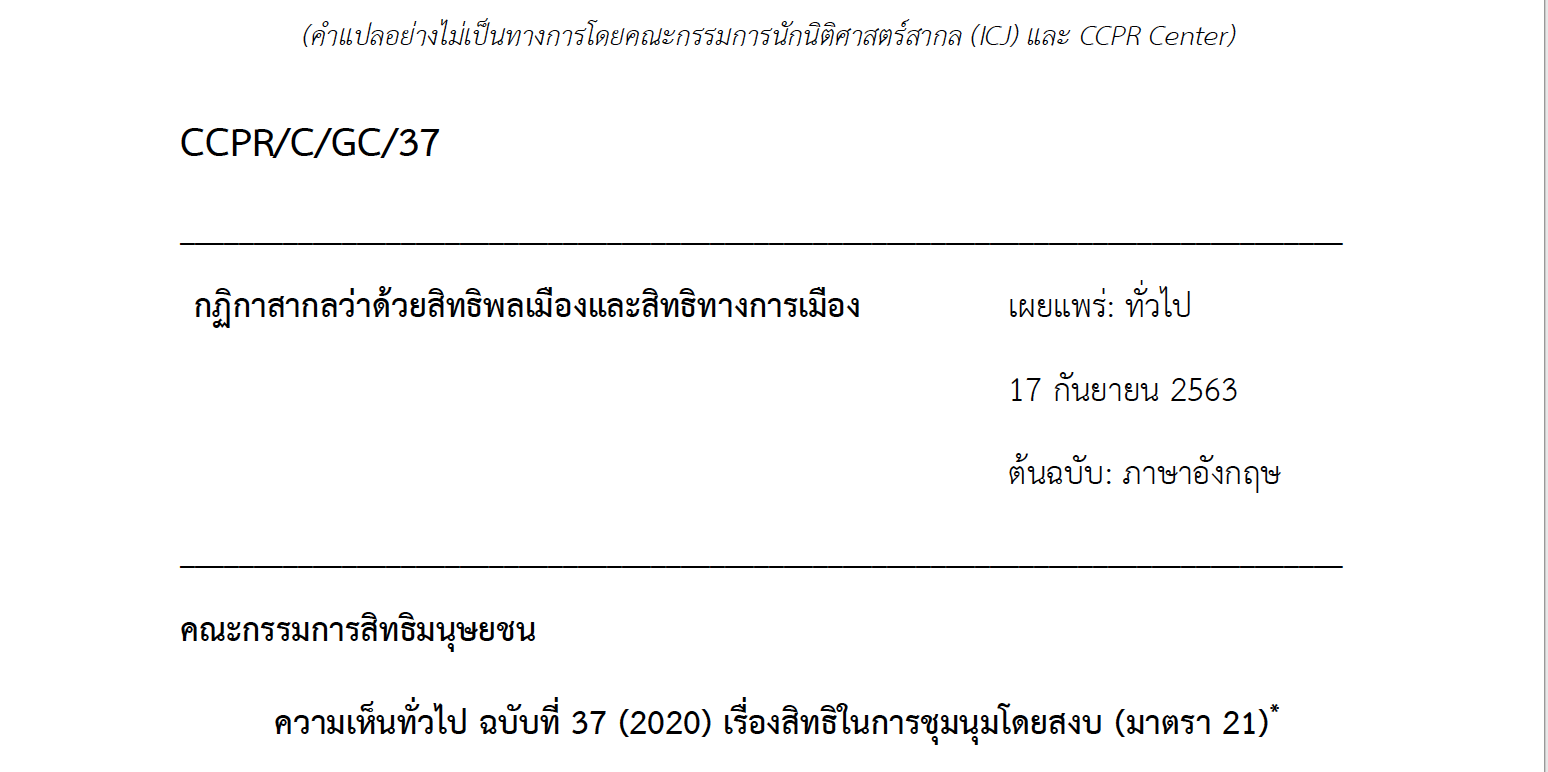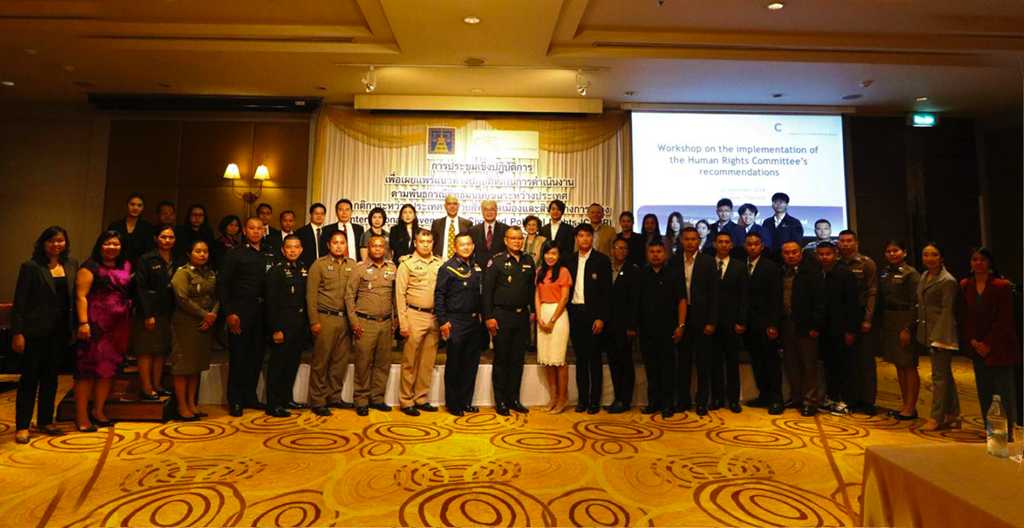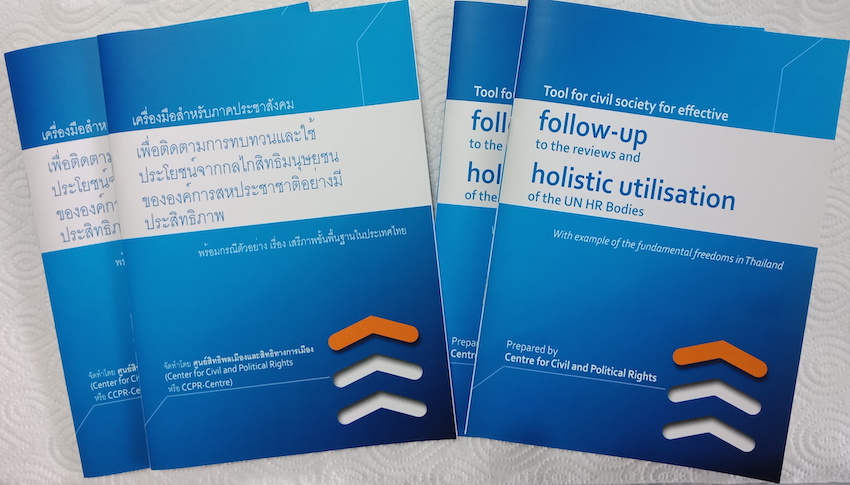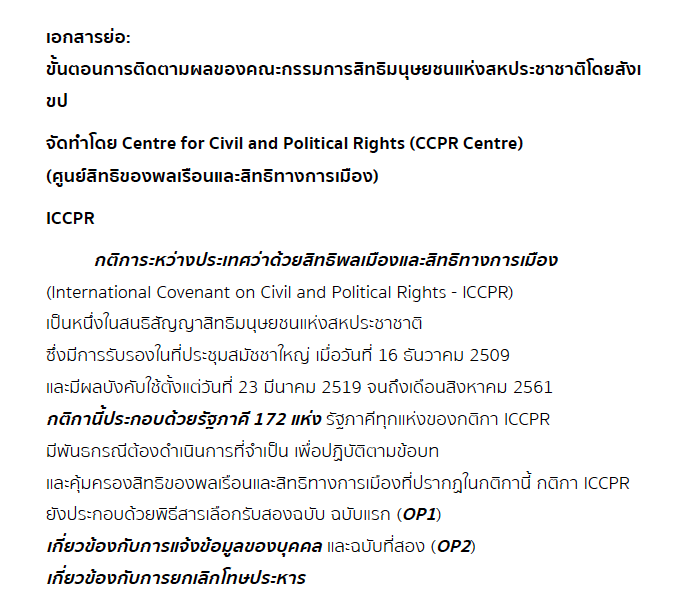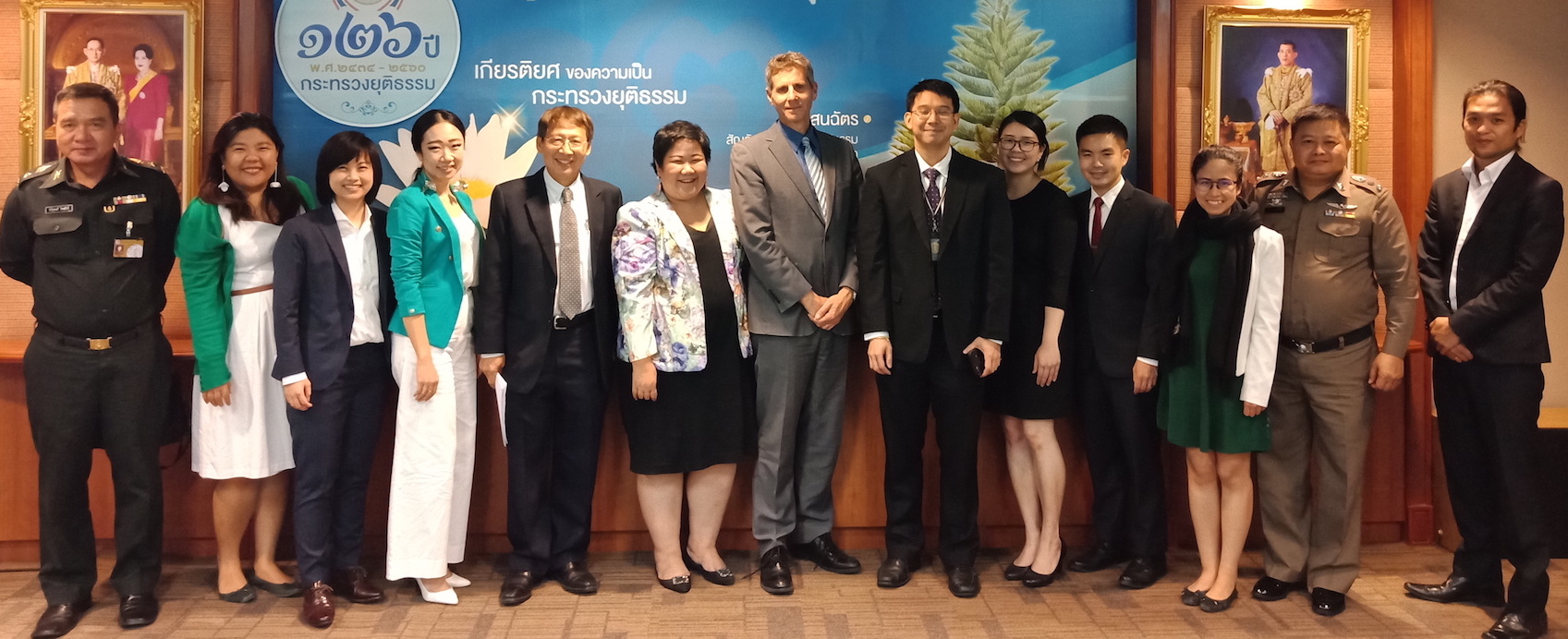Strengthening the protection of the right of peaceful assembly through the General Comment No.37 of the UN HR Committee
Yuval Shany, former Chair of the HR Committee, answers 10 questions to strengthen protection of the right of peaceful assembly through the General Comment No.37 of the UN HR Committee

Prof. Yuval Shany
Yuval Shany was a member of the UN Human Rights Committee from 2013 to 2020, where he also served as the Chair of the Committee. During his 8-year term, the Committee has produced three General Comments, No.35 (article 9 - liberty and security of person), No.36 (article 6 - right to life) and No.37 (article 21 – right of peaceful assembly). He has also played a crucial role in the development of the Committee’s statement on derogations from the ICCPR in connection with the COVID-19 pandemic (CCPR/C/128/2).
Q1: What is the General Comment? Do States parties to the ICCPR need to follow it? How about States that are not parties to the ICCPR?
General Comments published by the Human Rights Committee are documents containing the Committee’s authoritative interpretations of different provisions or aspects of the ICCPR, as well as ‘best practices’ it recommends for effective implementation of the Covenant. Such interpretations were developed by the Committee after extensive consultations with States and other stakeholders, and adopted by the Committee by consensus. They codify the relevant decisions of the Committee and address other interpretive and practical questions which have arisen in the work of the Committee and other human rights bodies. The General Comments provide States parties with specific guidance in order to help them fully implement their obligations under the ICCPR and its Optional Protocols. Although General Comments are not formally binding on States parties (and certainly not on States that are not parties to the ICCPR), the status of the Committee as a body of experts elected by the States parties, the fact that it was entrusted with the responsibility of monitoring the implementation of the ICCPR, its extensive experience with interpreting and applying the Covenant, and the thorough process of formulating the General Comments render them highly persuasive and authoritative. To date, the Committee has published 37 General Comments.
Q2: What kind of assemblies are protected under the ICCPR Article 21?
ICCPR Article 21 protects peaceful assemblies i.e. non-violent gatherings of more than one persons for specific purposes, principally expressive ones. The initial scope of protection is broad. It includes stationary and mobile gatherings, which may take place indoors and outdoors, on public or private land. Online assemblies or measures undertaken online in connection with physical assemblies (such as online advertisement of an assembly) are also protected.
Assemblies are presumed to be non-violent, and only clear indications of resort or intent to resort to force on a scale likely to result in injury or death, or serious damage to property should be considered as a form of “violence” justifying intervention by the police or other law enforcement agency. Even then, isolated acts of violence by some participants do not render the entire assembly non-peaceful, as opposed to situations involving widespread and serious violence. Rather, when sporadic violence occurs, the police should address only the violent elements in the assembly and not disperse the entire assembly. The General Comment No.37 clarifies that mere pushing and shoving or the disruption of vehicular or pedestrian movement or other daily activities do not constitute acts of violence. It also clarifies that violence instigated by the police or counter-demonstrators should not result in removal of protection from the otherwise peaceful assembly. Whether or not carrying of weapons into an assembly indicates an intent to resort to violence should be assessed on a case-by-case basis.
Q3: What kind of restrictions can be imposed on the right of peaceful assembly?
Article 21 of the ICCPR allows certain restrictions, if they are imposed in conformity with domestic law and are necessary in a democratic society – a requirement which the Committee has construed as entailing also a relationship of proportionality between the public interest pursued and the severity of the restriction placed on the enjoyment of the right. Article 21 provides that the only legitimate grounds for restricting the right to peaceful assembly are reasons of national security, public safety, public order (ordre public) and protection of public health, public morals or the rights and freedoms of others. General Comment No. 37 further explains that restrictions imposed must be precise in their contents and should not confer unfettered or sweeping discretion on those charged with their enforcement. It also calls on States parties to interpret narrowly the legal grounds for restriction, and even when limiting rights, they should do so in ways that seek to facilitate as much as possible the enjoyment of the right. For example, they should offer in exceptional cases, where restrictions on the organizer’s choice of time and location within “sight and sound” of the target audience are justified, alternative time and location for the assembly. It is important that, as a rule, restrictions should be content neutral – that is, regardless of the message communicated by participants in the assembly. Gay pride parades should enjoy similar protections to festive parades. One exception is propaganda for war, or advocacy of national, racial or religious hatred that constitutes incitement to discrimination, hostility or violence. Disseminating such contents should be banned by law, and the police may restrict assemblies whose dominant message involves them.
Q4: What kind of restrictions cannot be imposed?
Restrictions imposed for grounds other than those listed article 21 are impermissible under the ICCPR, as are restrictions pursuant to one of recognized grounds listed in article 21 but without a compelling justification for doing so, or in the absence of concrete risk assessment or evidence. As indicated already, restrictions cannot entail unnecessary or disproportionate consequences. In this context, States should consider the chilling effect caused by restriction on those who would wish to exercise the right to peaceful assembly in the future. Another constraint that States must respect is that restrictions may not be discriminatory in their application.
The fact that a peaceful assembly provokes or may provoke a hostile reaction from members of the public against participants in it does not, generally speaking, justify the imposition of a restriction on the assembly. Instead, the assembly must be allowed to go forward and its participants must be protected from any attack. Only in exceptional cases, where the State is manifestly unable to protect the safety of the participants in the assembly, after a concrete risk assessment was performed, restrictions on participation in the assembly may be imposed.
Finally, States should not impose unreasonable conditions upon the exercise of the right of peaceful assembly, such as imposing on the organizers the costs of public services or exposing them to liability for the conduct of the other participants.
Q5: Do we need “permission” from the national authority to organise peaceful assemblies?
Since the right to peaceful assembly is a basic right, its exercise should not be subject to prior approval by the State. As a result, the Human Rights Committee is of the view that States that require authorization or licensing procedures for assemblies do not meet their obligations under the ICCPR. At the same time, the Committee accepts that States have a legitimate interest in being notified in advance about planned assemblies. In fact, a well-functioning notification regime may assist the State in meeting its positive obligations to facilitate the holding of assemblies – for example, to divert traffic, if necessary – and to ensure their safety. General Comment No. 37 indicates, however, that authorization systems, which effectively function as notification regimes i.e., in which authorization is routinely granted, are not prohibited.
Q6: How States should protect the right of “spontaneous” peaceful assembly?
Even if a State operates a system of prior notification, as it is entitled to do so under the ICCPR, such a system should leave an exception for spontaneous peaceful assemblies that respond to current events or new political developments. Since there may not be enough time to notify the authorities in advance in the prevailing circumstances, conditioning the holding of the assembly upon prior notification would render illusory the right to peaceful assembly.
Q7: How should States protect the right to privacy of organisers and participants of peaceful assembly? For example, is gathering of their personal information allowed?
The right to privacy of organizers and participants in peaceful assemblies must be respected for both intrinsic reasons – relating to the need to respect the privacy of all individuals in all circumstances - and instrumental reasons relating to the chilling effect which may attach to disclosing personal details of individuals involved in organizing or participating in assemblies. As a result, States should not apply surveillance tools, including the collection of personal information found in social media about individual organizers or participants and the use of facial recognition technology aimed at identifying and storing information about participants in assemblies. Furthermore, participants in assemblies have, barring compelling reasons to the contrary, the right to cover their faces in order to preserve their anonymity when participating in an assembly (or for specific expressive purposes).
A key insight which General Comment No. 37 embraces in this regard is that the right to privacy should also be respected in public spaces. Whereas in the past, individuals participating in assemblies could maintain the anonymity of being a “face in the crowd”, new technologies allowing for mass surveillance and collecting biometric data have the potential to de-anonymise and infringe the privacy of organizers and participants.
Q8: Can restrictions be put on the content of peaceful assemblies, for example, can the national authority impose restrictions focusing on “political” ones?
National authorities are not allowed, as a rule, to restrict peaceful assemblies by reason of the contents communicated in them. Instead, they are expected to respect the principle of “content neutrality” and facilitate all peaceful assemblies regardless of the specific political or other messages they express. Furthermore, General Comment No. 37 suggests that given the particular importance of political speech in democracies, political assemblies should enjoy a heightened degree of protection.
One significant exception to the proposition that no restrictions can be placed on the contents of peaceful assemblies is found in respect of assemblies designed to advance contents which article 20 of the ICCPR requires States parties to ban. These include propaganda for war, or advocacy of national, racial or religious hatred that constitutes incitement to discrimination, hostility or violence. States parties are required to effectively enforce their laws against such forms of war propaganda or hate speech, including, where appropriate, through dispersing assemblies whose dominant message violates article 20, or prosecuting ex post facto individuals who violated criminal laws giving effect to article 20 by banning hate speech.
Q9: Can immigration status be linked to the exercise of the right of peaceful assembly?
No. The right of peaceful assembly is held by all individuals, regardless of their immigration status, and it would be incompatible with the ICCPR, if migrant organizers or participants are punished or threatened with deportation or change of visa status for exercising their right.
Q10: Can States completely ban peaceful assembly, for example, for the protection of public health in the context of Covid-19 pandemic? How States should protect the right of peaceful assembly while tackling the pandemic?
The right to freedom of peaceful assembly is not absolute in nature and may be restricted for public health reasons. A complete ban on assemblies for public health reasons is, however, an extreme measure that would require compelling reasons for justifying it. This is particularly so, since public health measures taken during a pandemic often have significant implications for the ability to exercise a variety of human rights (e.g., restrictions on movement, work, education, religious gatherings etc.), and the right to peaceful assembly serves as an important democratic check against excessive public health restrictions. The practice of States during COVID-19 shows that, whereas many States imposed restrictions on the right to peaceful assembly, restrictions tended to revolve around the overall number of participants, the location of the assembly (outdoors), and observance of public health guidelines (wearing masks and maintaining physical distancing), and usually did not involve outright bans. As a legal matter, it seems that such an approach is indeed warranted, unless a formal derogation from the Covenant due to a state of emergency has been deposited. Without this, a complete ban would appear to violate the obligations of States parties under article 21 of the ICCPR. And even if a derogation is made, the need for a full ban appears to be an excessive measure, which fails to meet requirement of necessity and proportionality that apply even in times of emergency (as the Committee’s statement on derogations from the ICCPR in connection with the COVID-19 pandemic (CCPR/C/128/2) explains).


